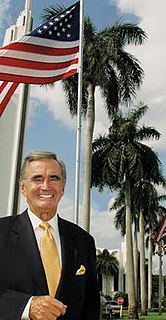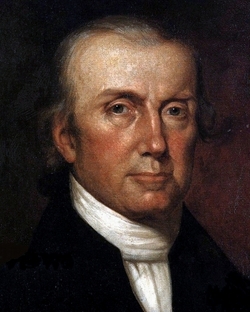A Quote by Patrick Henry
The great pillars of all government and of social life [are] virtue, morality, and religion. This is the armor, my friend, and this alone, that renders us invincible.
Quote Topics
Related Quotes
Of all the dispositions and habits which lead to political prosperity, religion and morality are indispensable supports. In vain would that man claim tribute to patriotism who should labor to subvert these great pillars of human happiness - these firmest props of the duties of men and citizens. . . . reason and experience both forbid us to expect that national morality can prevail in exclusion of religious principles.
In his address of 19 September 1796, given as he prepared to leave office, President George Washington spoke about the importance of morality to the country's well-being: Of all the dispositions and habits which lead to political prosperity, Religion and Morality are indispensable supports. . . . And let us with caution indulge the supposition that morality can be maintained without religion. . . . Can it be that Providence has not connected the permanent felicity of a Nation with its virtue?
Whatever efforts one may make, one must revert to the realization that religion is the real basis of morality; religion is the real and perceptible purpose within us, which alone, can turn aside our attention from things. ... The science of morality can no more teach human beings to be honest, in all the magnificence of this word, than geometry can teach one how to draw.
Politics and morality are inseparable. And as morality's foundation is religion, religion and politics are necessarily related. We need religion as a guide. We need it because we are imperfect, and our government needs the church, because only those humble enough to admit they're sinners can bring to democracy the tolerance it requires in order to survive.
Everywhere the tendency has been to separate religion from morality, to set them in opposition even. But a religion without morality is a superstition and a curse; and anything like an adequate and complete morality without religion is impossible. The only salvation for man is in the union of the two as Christianity unites them.
And so it is true in this sense that there is essentially but one religion, the religion of the living God. For to live in the conscious realisation of the fact that God lives in us, is indeed the life of our life, and that in ourselves we have no independent life, and hence no power, is the one great fact of all true religion, even as it is the one great fact of human life. Religion, therefore, at its purest, and life at its truest, are essentially and necessarily one and the same.





























